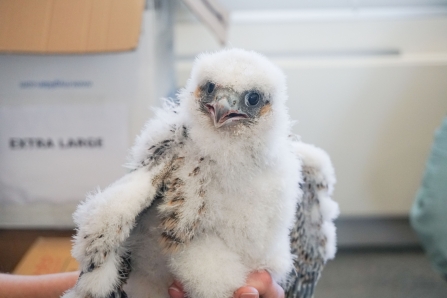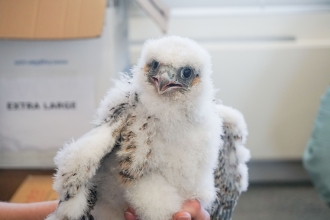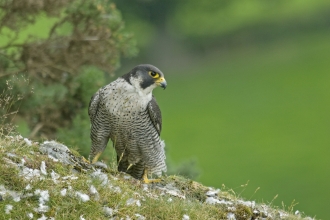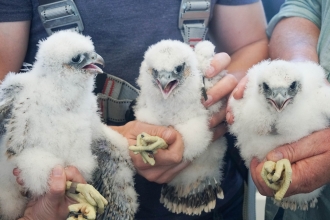No chicks hatched last year and it was feared that the female would die after becoming egg-bound but the pair have returned to form hatching three healthy chicks.
Yesterday Nottinghamshire Wildlife Trust coordinated a team of expert bird ringers and staff from the University provided the team with safe access to the ledge.




